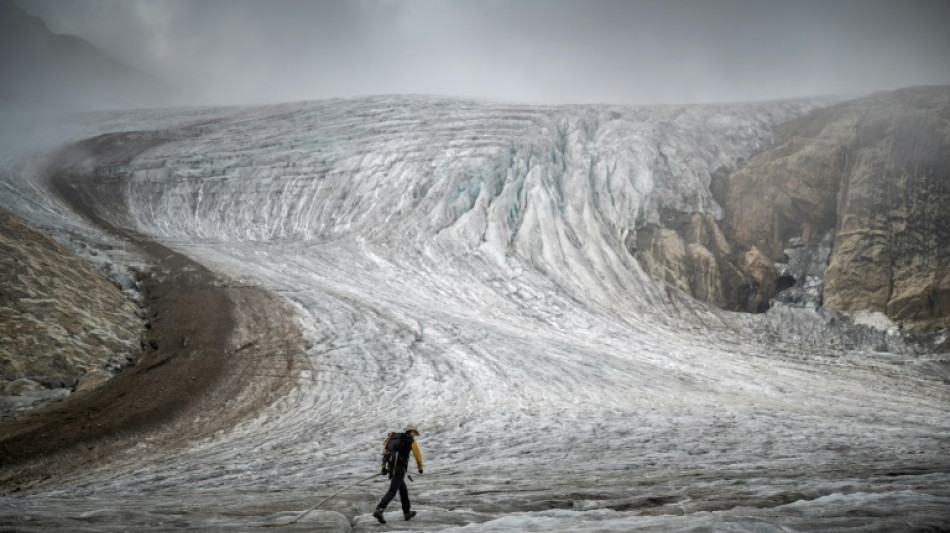
-
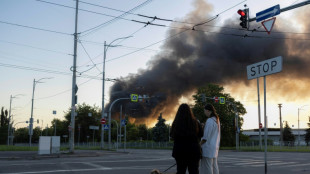 Russia brushes of talks after largest assault on Ukraine
Russia brushes of talks after largest assault on Ukraine
-
England's James ready for Euros opener with France, says Wiegman

-
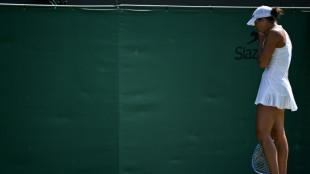 Keys latest to fall in Wimbledon wipeout as Alcaraz resumes title bid
Keys latest to fall in Wimbledon wipeout as Alcaraz resumes title bid
-
Smith and Brook tons lead England revival against India in second Test
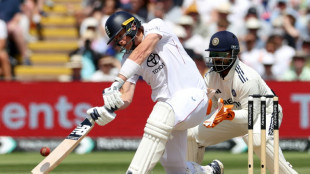
-
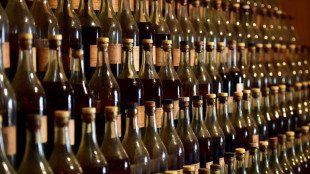 France praises China Cognac progress, warns of unresolved issues
France praises China Cognac progress, warns of unresolved issues
-
Australian Open champion Keys stunned at Wimbledon

-
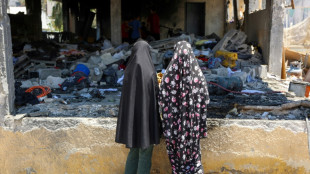 Hamas says holding consultations on Gaza truce proposal
Hamas says holding consultations on Gaza truce proposal
-
Top gun Pogacar targets fourth Tour de France triumph
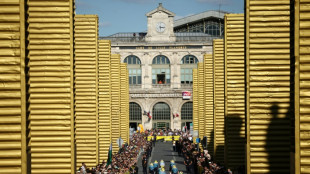
-
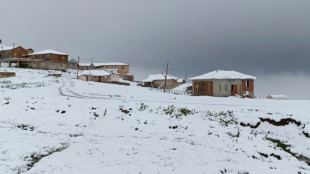 Heavy snow hits Turkey's northeast as southwest burns
Heavy snow hits Turkey's northeast as southwest burns
-
Pakistan building collapse kills 7

-
 Osaka still dreams of glory despite latest Wimbledon flop
Osaka still dreams of glory despite latest Wimbledon flop
-
Hamilton on top after opening practice for British GP

-
 Alcaraz back in action at Wimbledon as Raducanu eyes Sabalenka shock
Alcaraz back in action at Wimbledon as Raducanu eyes Sabalenka shock
-
Court strikes suspension for Nigerian senator who complained of sexism

-
 Riquelme leaves Atletico Madrid for Real Betis
Riquelme leaves Atletico Madrid for Real Betis
-
Osaka blows chance to reach Wimbledon fourth round

-
 England's Smith stuns India with blistering century in second Test
England's Smith stuns India with blistering century in second Test
-
Meltdown: Swiss glaciers hit annual tipping point weeks early
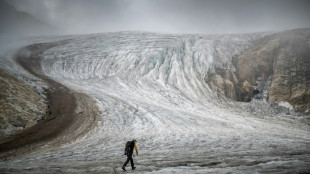
-
 Salah 'frightened' to return to Liverpool after Jota death
Salah 'frightened' to return to Liverpool after Jota death
-
Wimbledon pays tribute to Jota after Liverpool star's death

-
 Macron to co-chair Ukraine talks with Europe leaders while in UK: Elysee
Macron to co-chair Ukraine talks with Europe leaders while in UK: Elysee
-
Dozens hurt in fuel station blast heard across Rome
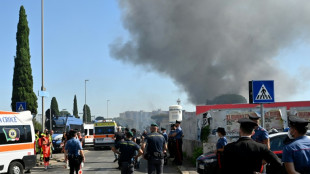
-
 Vingegaard 'stronger than ever' as Tour de France start looms
Vingegaard 'stronger than ever' as Tour de France start looms
-
Russia brushes off talks, launches largest assault on Ukraine
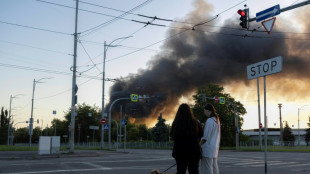
-
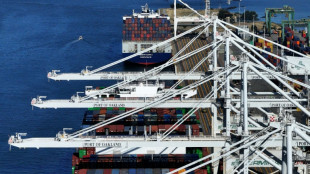 Stocks, dollar drop as tariff talk dominates
Stocks, dollar drop as tariff talk dominates
-
Besiktas take Tammy Abraham on loan from AS Roma

-
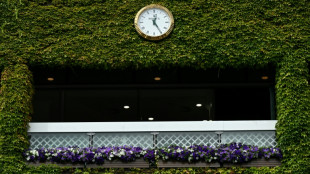 Wimbledon defends prize pot as players push for bigger share of profits
Wimbledon defends prize pot as players push for bigger share of profits
-
Siraj's double strike leaves England reeling in second Test

-
 Pakistan building collapse kills 6: police
Pakistan building collapse kills 6: police
-
Nico Williams pens new Athletic deal in transfer twist

-
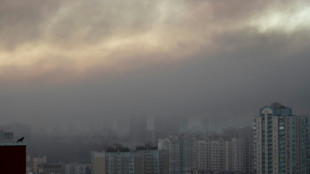 Russia hits Ukraine with largest barrage of war after Putin-Trump call
Russia hits Ukraine with largest barrage of war after Putin-Trump call
-
China to require EU brandy exporters to raise prices or face tariffs
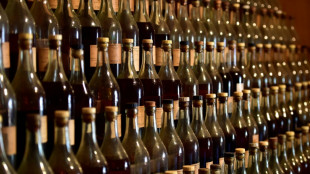
-
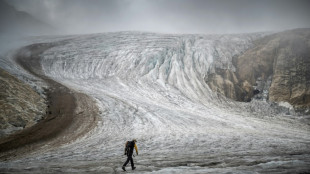 Swiss Alps hits annual glacier tipping point weeks early
Swiss Alps hits annual glacier tipping point weeks early
-
At least five dead in Pakistan building collapse: police

-
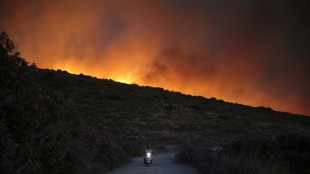 Firefighters master one Turkey wildfire as two others rage on
Firefighters master one Turkey wildfire as two others rage on
-
Second day of travel chaos as French air traffic controllers strike

-
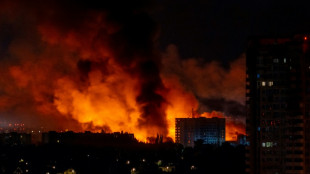 Putin hits Ukraine with largest barrage of war after Trump call
Putin hits Ukraine with largest barrage of war after Trump call
-
Philippines asks Japan's help searching lake for missing cockfighters

-
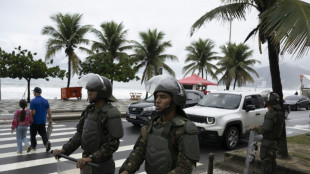 Rio to host BRICS summit wary of Trump
Rio to host BRICS summit wary of Trump
-
Trump to sign 'big, beautiful' bill on US Independence Day

-
 Schmidt confident sidelined Wallabies' trio will be fit for Lions
Schmidt confident sidelined Wallabies' trio will be fit for Lions
-
North Korean detained after crossing land border: Seoul military
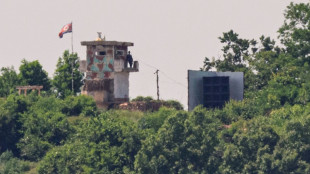
-
 Bayern stand before PSG in battle of Club World Cup favourites
Bayern stand before PSG in battle of Club World Cup favourites
-
Record cold grips Argentina, Chile and Uruguay
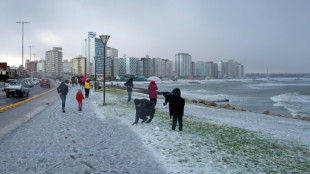
-
 Abidjan dreams of becoming Africa's next cinema hub
Abidjan dreams of becoming Africa's next cinema hub
-
Fired in bathrobe: Slovak cultural heads recall their dismissals

-
 Scott Barrett says All Blacks not 'disrespected' by France
Scott Barrett says All Blacks not 'disrespected' by France
-
Alcaraz searches for perfect serve at Wimbledon, Raducanu eyes Sabalenka shock

-
 Tour de France: Clash of styles as odd couple duel for title again
Tour de France: Clash of styles as odd couple duel for title again
-
Mead eyes Euros repeat for England after emotional rollercoaster


Meltdown: Swiss glaciers hit annual tipping point weeks early
The snow and ice accumulated last winter by Switzerland's glaciers has already melted away, a monitoring service said, with Friday marking the alarming second-earliest arrival on record of the tipping point known as glacier loss day.
All further melting between now and October will see the size of glaciers in the Swiss Alps shrink, according to Glacier Monitoring in Switzerland (GLAMOS).
This century, the tipping point, on average, has been reached in mid-August -- itself already bad news for the nation's 1,400 glaciers, which are shrinking at a staggering rate.
Its arrival several weeks earlier on July 4 is "another alarm call", GLAMOS chief Matthias Huss told AFP.
"It's like the glaciers are shouting out: 'We're disappearing. Help us.'"
Glaciers in the Swiss Alps began to retreat about 170 years ago.
The retreat was initially modest but in recent decades, melting has accelerated significantly as the climate warms.
The volume of Swiss glaciers shrank by 38 percent between 2000 and 2024.
- Summer of destruction -
"If we have a glacier loss day, it means that the glacier is losing mass," said Huss.
"For a glacier that is healthy, the day would occur at the end of September, or in October -- or not at all".
With no glacier loss day, the summer would simply melt away only the snow that accumulated over the previous winter.
This would be "the ideal case -- a glacier in equilibrium with the climate", said Huss.
Its arrival on July 4 means that "critically, we have the whole summer left to destroy the ice".
"Moving this day forward by five to six weeks before the normal date over the last 20 years means we're just prolonging this mass loss season dramatically," he said.
The assessment is made using 12 reference glaciers.
Last winter saw low levels of snowfall, and June was the second warmest on record, contributing to the day's early arrival this year.
In data going back to 2000, the only time that the tipping point arrived even earlier was in 2022, when it came on June 26.
"That was really a game-changer for us glaciologists because it was the first year when we saw absolutely extreme melting.
"Everything that we knew before about glacier melting changed," said Huss.
Experts thought 2022 was a complete outlier and although a warming climate meant other such years would be coming down the line, they did not expect to see the next very early glacier loss day coming so soon afterwards.
- Feedback effect -
Huss noted that extreme melting produces an accelerating feedback effect, worsening the situation even further.
Once the reflective white snow coverage from winter is gone from the top of the glacier, the darker, more absorbent grey surface of the bare ice is exposed.
"With the same amount of solar radiation, we can now melt more ice," Huss said.
With the European heatwave over the past week and the possibility of further heatwaves in July and August, "it is very like that again it is a very bad year for Swiss glaciers", he said.
Melting glaciers threatens the long-term water security for millions of people downstream who rely on them for fresh water.
Much of the water that flows into the Rhine and the Rhone, two of Europe's major rivers, comes from the Alpine glaciers.
F.AbuZaid--SF-PST
